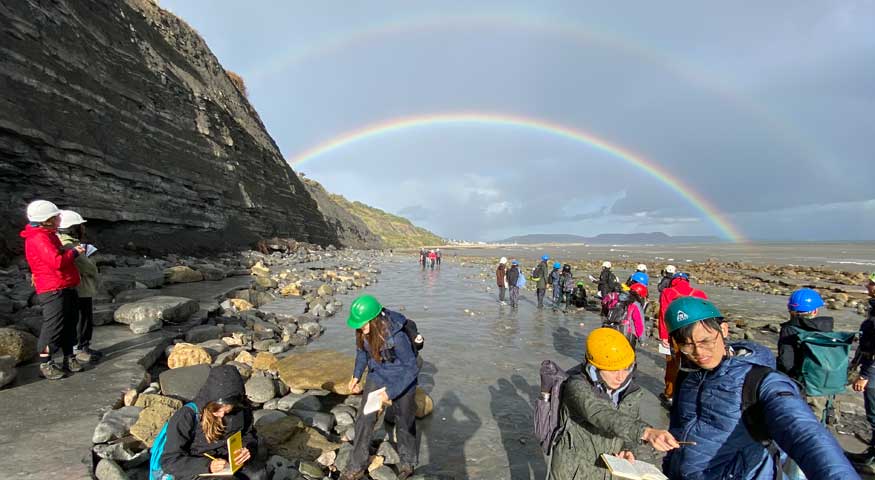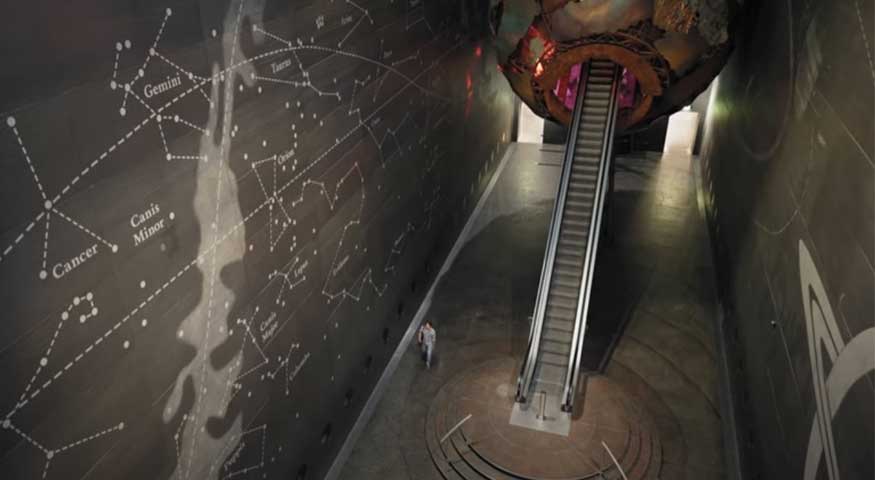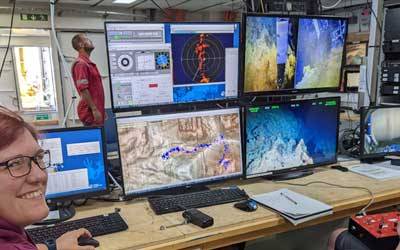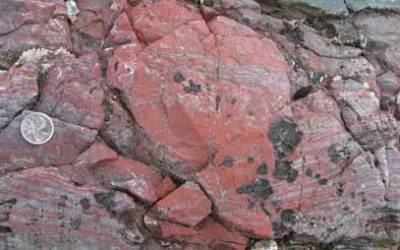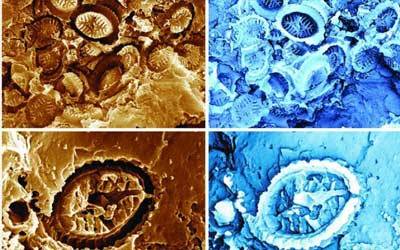Departmental Newsletter Spring 2022
Student Experience: MSci class of 2022
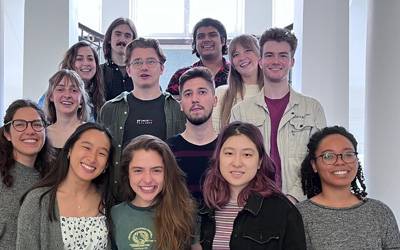
Busy day in the department with micro-talks & poster session of our graduating MSci students. Big congratulations to our finalist!
Meet the Staff: Dr Katie McFall
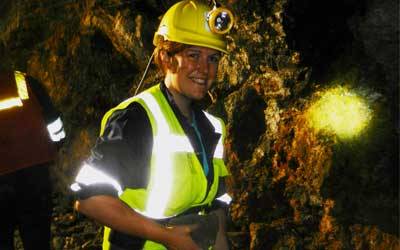
I am fascinated by what happens when very hot fluids, such as salty water and carbon dioxide, interact with molten rock and metals deep in the earth.
PhD News: Antarctic fieldwork
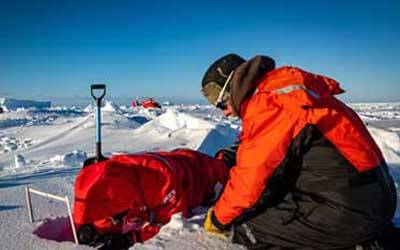
I was lucky to lead the radar-physics component of the first DEFIANT field campaign in the Weddell Sea of Antarctica.
Research: Searching for metals in the Atlantic
Doing geology under 3 km of water is a challenge; we used a remotely-operated underwater vehicle which made videos of the seafloor and took samples.
Research: The first sign of ancient life?
Diverse microbial life existed on Earth at least 3.75 billion years ago, suggests a new study that challenges the conventional view of when life began.
Research: 'Ghost' fossils & past global warming
The discovery of single-celled plankton is changing our understanding of how plankton in the oceans is affected by climate change.
Events: Careers Event

Learn about careers that can stem from Earth Sciences degree.We had the opportunity to gain a valuable insight into their job and experiences.
Equality: Ethnic Diversity Network

One of our key priorities is to ensure that students & staff of all races and ethnicities feel welcome and supported in our department.
Outreach: Should we stop climate change early?

Dr Pete Irvine discussed the unique opportunities, challenges and risks of dimming the sun.
Update from Prof Paul Upchurch, Head of Department.
Over the past few months there have been several highlights for the department, including a very successful undergraduate exam board in which the External Examiners praised the warm and welcoming atmosphere in the department and the high quality of the educational experience. Dr Luke Parry has recently been appointed to a joint lectureship between us and the Department of Genetics, Evolution and Environment. I am also delighted to report that Dr Liz Gaunt (who did her PhD in the department eight years ago) has won a prestigious NERC Independent Research Fellowship and is bringing it to Earth Sciences. Similarly, Dr Anna Joy Drury, who already works in the department as a Marie curie Fellow, has also won a NERC IRF. Given that Luke Parry has also just been awarded one of these fellowships, this brings the total number of NERC iRFs in the department to 7.5 – quite an impressive number which reflects the high quality of our research and facilities. And talking of high-quality research, in the recent research excellence framework results, 63.5% of the papers we submitted were graded as 4* (that is, world leading research). I’m also aware that three of our current members of staff have been successful in their bid for promotion – congratulations to them – but unfortunately the news is embargoed at the time of writing, so I will reveal their identities next time around.
One might think that, with our Undergraduate Exam Board out of the way, departmental activity would now be winding down for the summer as staff go on well-deserved annual leave or head off for data collection and field trips. However, we have one last important duty to perform before we can relax for the summer – next week we will be interviewing 16 people for four new lectureships/associate professor positions in the department. These new posts are largely to replace retiring staff and reflect considerable turnover in the department over the last few years. In fact, it occurred to me a few weeks ago that in my four years as Head of Department, I will have overseen the replacement of 15 of our 30 permanent academic staff. We are very grateful to all of those staff who have retired in the last few years after several decades of dedicated service to the department and UCL – these include Willy Burgess, Kevin Pickering, Juergen Thurow, Adrian Jones, Dan Osborn, and Tim Atkinson. While we are sad to see these people leave us, the hiring of new lecturers gives us an opportunity to think strategically about the future direction of the department. For me, while I consider it to be essential that we maintain our strengths in the theoretical research that provides a fundamental understanding of how the Earth-Life System works, we also need to respond to the growing demands from students and society for an increased emphasis on the environmental geosciences, climate change, geophysical hazards, and sustainable resources.
Clearly, high inflation represents a challenge to universities (just imagine what it is doing to wage bills and energy costs) but as a Department and a University we remain confident and buoyant. Student recruitment is extremely healthy, and as noted above, we continue to maintain our track record of world leading research and attracting world leading early career researchers. I wish our staff, students, and all the readers of this newsletter, a very happy summer break and well-deserved rest.
 Close
Close


